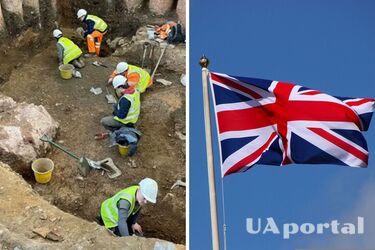A Roman shrine of the 2nd century was discovered in Britain (photo)

Archaeologists have discovered what they believe to be an altar stone during excavations in Great Britain. The discovery, which dates back to the 2nd century AD, was made in the basement of a Roman building, and is likely the remains of a private shrine or cult room.
Mathew Morris, who led the excavation, said the discovery of the Roman altar - the first to be found in Leicester - was remarkable. The Guardian reported about it.
"For centuries there has been a tradition that a Roman temple once stood on the site of the present Cathedral. This folk tale gained wide acceptance in the late 19th century when a Roman building was discovered during the rebuilding of the church tower," he added.
Read also: A medieval royal wharf was discovered in Norway
A team that excavated the area in the cathedral gardens found evidence of a semi-underground chamber. In their opinion, it was too well decorated to be just a storage basement. In it, they found the base of the altar that lay broken and face down.

"Given the combination of a subterranean structure with painted walls and the altar we have found, one interpretation, which seemed to grow in strength as we excavated more, could be that this was a room linked with the worship of a god or gods. What we're likely looking at here is a private place of worship, either a family shrine or a cult room where a small group of individuals shared in private worship," Morris said.

It is noted that such underground rooms were often associated with fertility cults. Unfortunately, no evidence of an inscription on the altar has survived, but it was the primary place for sacrifices to the gods as well as a key part of their religious ceremonies.

Earlier, a group of volunteer scientists from three universities in Chile found a new moai statue in the volcano crater on Easter Island.
If you want to receive the latest news about the war and events in Ukraine, subscribe to our Telegram channel!
